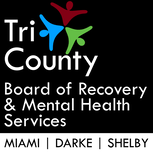To find professional mental health or addiction support in Miami, Darke and Shelby Counties, see our Service Provider Network page or the Resources page. If you feel you are in crisis, call the 24/7 Tri-County Crisis Hotline at 937-351-7347, the national Crisis Text Line at 741741, or the national Suicide Prevention Lifeline at 988.
Tips for Maintaining Good Mental Health Through the HolidaysMaintaining good mental health during the holidays can be challenging. Here are some tips to help you navigate the holiday season while prioritizing your mental well-being:
Set Realistic Expectations:
[NOTE: This list of tips was compiled with the assistance of ChatGPT using the prompt "Compile a list of tips for maintaining good mental health through the holidays".] |
Tips for Hosting Persons in Recovery During the HolidaysHosting individuals in recovery from addiction during the holidays requires sensitivity and support. Here are some tips to create a welcoming and supportive environment:
Communicate Openly:
[NOTE: This list of tips was compiled with the assistance of ChatGPT using the prompt "Compile a list of tips for hosting persons in recovery from addiction during the holidays".] |

